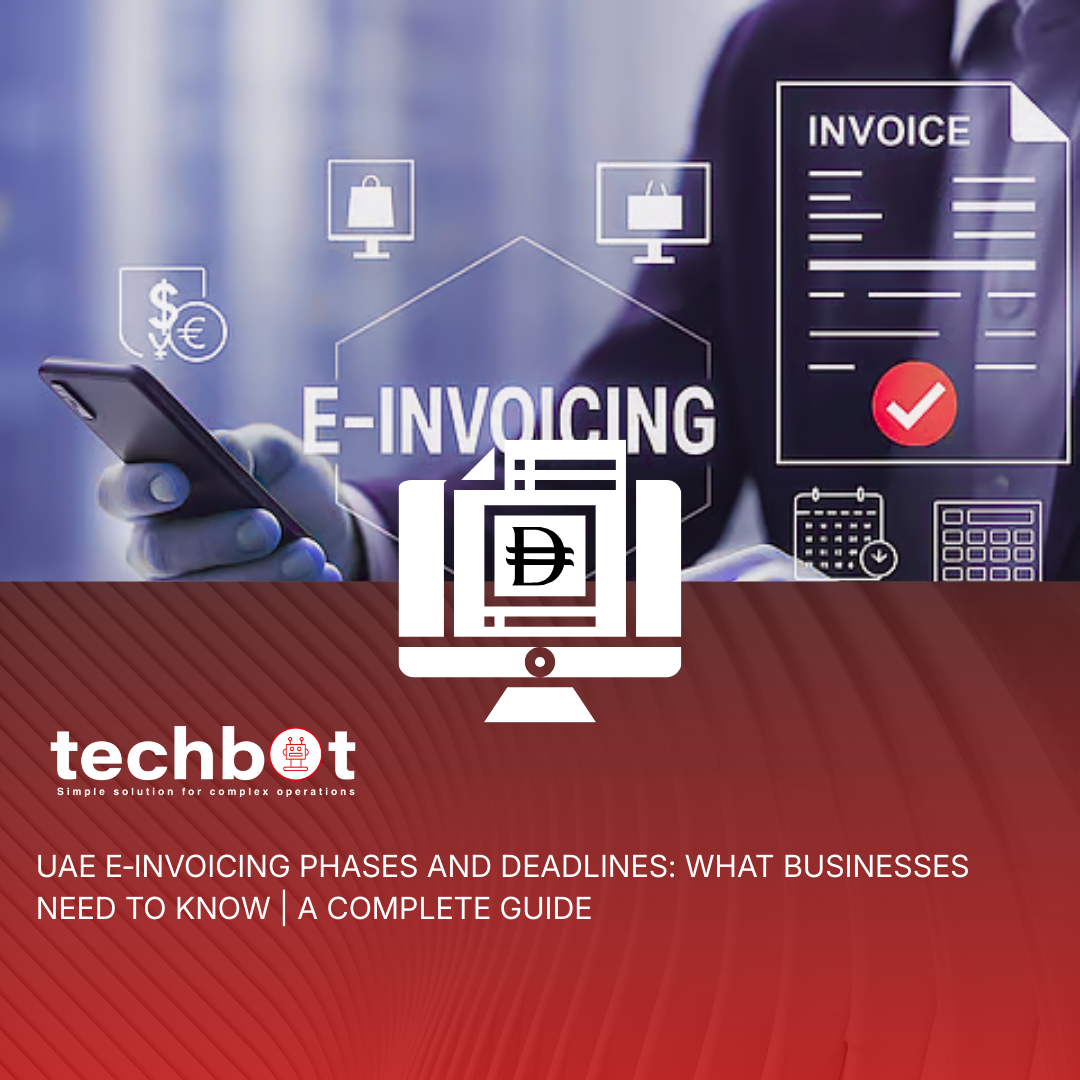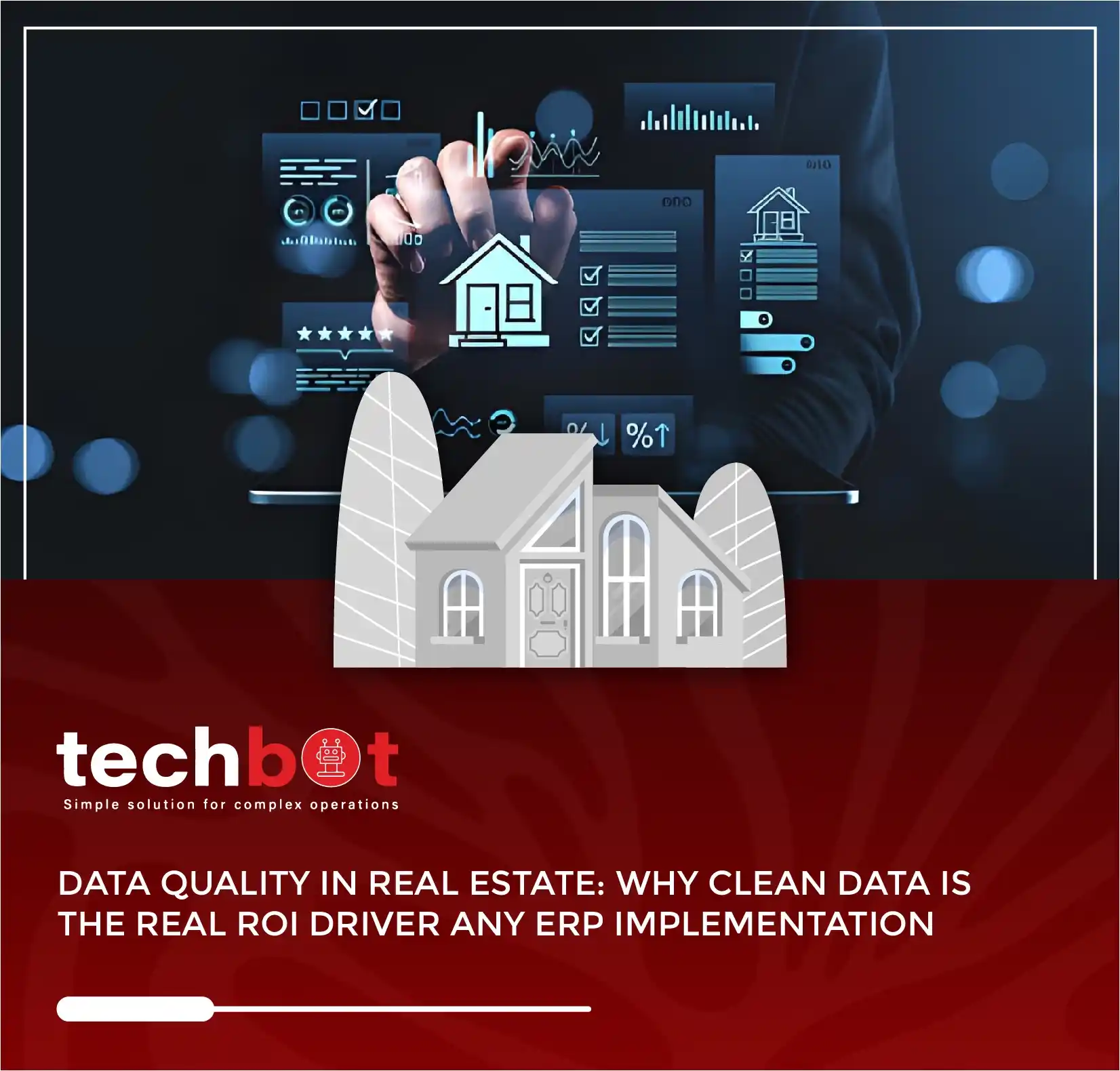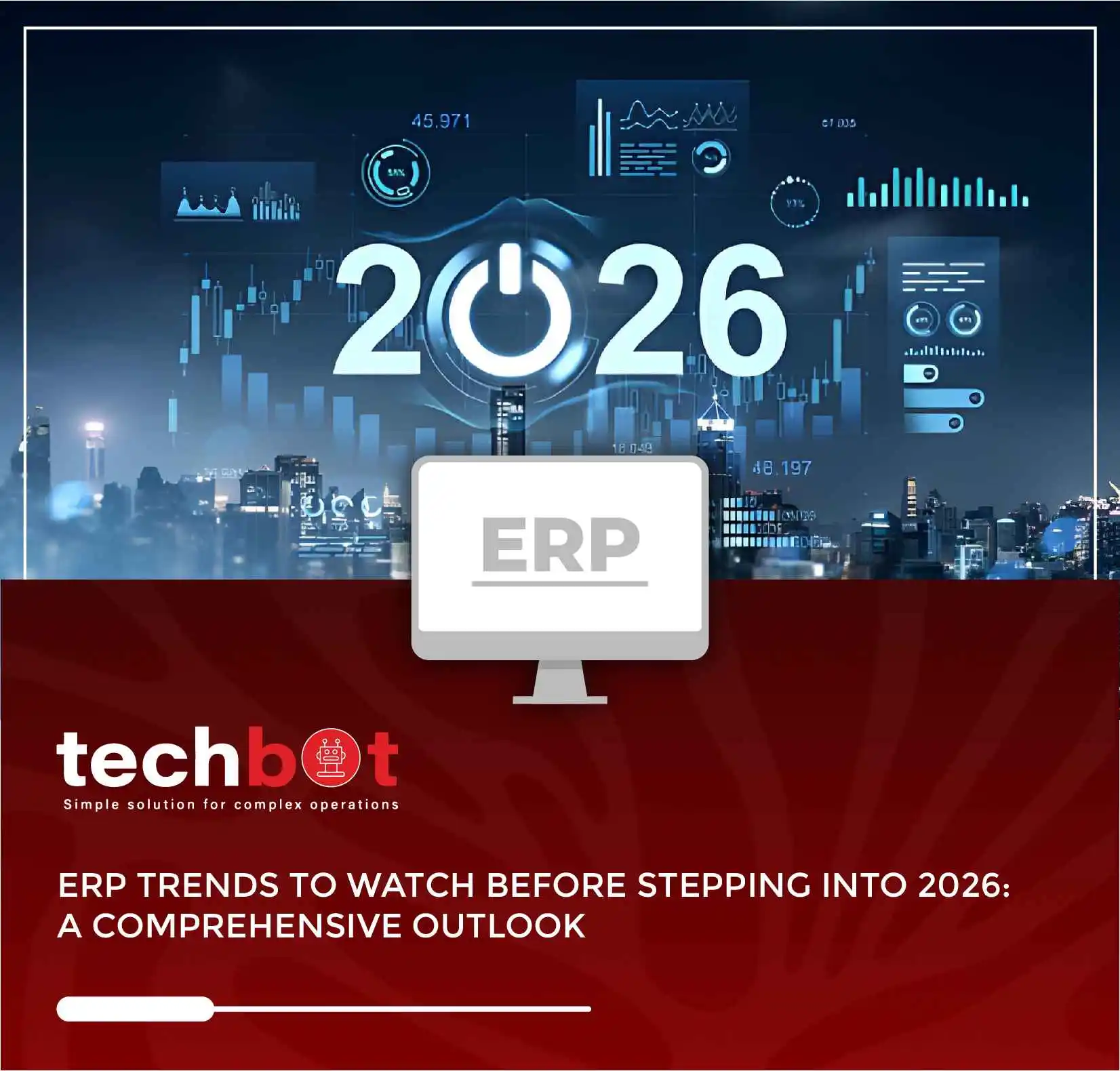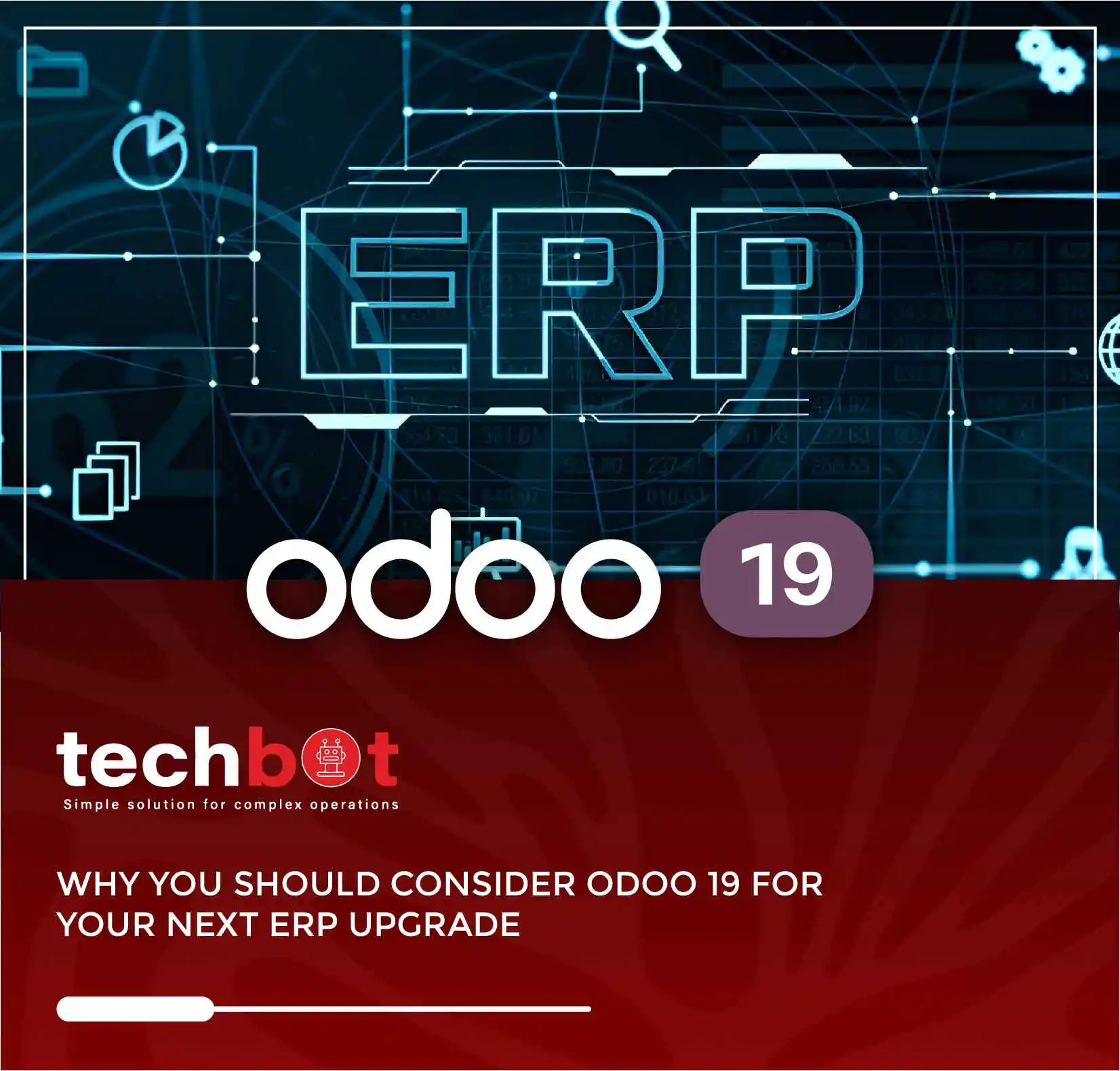Manufacturing in the UAE is more than just production. It’s about keeping up with changing demands, making the best use of resources, and ensuring every process runs smoothly. But the reality is that many manufacturers still rely on outdated systems, disconnected workflows, and inefficient material tracking. This leads to higher costs, production delays, and lost opportunities.
As industries move from Industry 4.0 to Industry 5.0, businesses need real-time insights, automation, and smarter decision-making. This is where ERP implementation in the manufacturing industry makes a big difference. Instead of using multiple disconnected tools, manufacturers can have a single system that brings everything together—inventory, production, and supply chain.
At Techbot Information Technology LLC, we help UAE manufacturers take control of their operations with Odoo ERP. Whether it’s reducing waste, improving efficiency, or increasing profits, our customized solutions help businesses work better and faster.
The future of manufacturing is here. Are you ready to get started?
How ERP implementation transforms manufacturing in the UAE
Manufacturing is a powerhouse in the UAE, contributing 9.7% to the GDP and set to hit 15% by 2030 under the ambitious “Operation 300bn” initiative. With the government rolling out incentives and world-class infrastructure, the country is becoming a prime destination for industrial growth.
But with rapid expansion comes challenges. Manufacturing companies must manage complex supply chains, optimize production, and stay competitive. That is where ERP implementation in the manufacturing industry comes in, helping businesses stay efficient, cut costs, and improve productivity.
Key manufacturing zones driving growth
The UAE has established several dedicated industrial zones to support the rapid expansion of manufacturing companies. These zones provide state-of-the-art infrastructure, tax benefits, and easy access to global markets, making them ideal for ERP implementation in the manufacturing industry.
✅ Umm Al Quwain Industrial Area is home to marine, construction, and food industries, fueling steady growth.
✅ Dubai Industrial City (DIC) is a hotspot with 700+ companies, covering everything from automobiles to steel production.
✅ Ajman Industrial Area is a major hub for construction, food processing, and textiles.
✅ Khalifa Economic Zones Abu Dhabi (KEZAD) is rapidly expanding with both heavy and light industries.
✅ Jebel Ali Free Zone (JAFZA) is a global trade giant, contributing 23% to Dubai’s GDP and supporting 8,700+ businesses.
✅ Al Quoz Industrial Areas serve as a strategic base for manufacturing, logistics, and warehousing.
✅ Hamriyah Free Zone (HFZ) in Sharjah is a hub for trade and manufacturing industries.
✅ Al Ghail Industrial Zone is ideal for heavy manufacturing businesses.
✅ Al Hamra Industrial Zone specializes in light industries and packaging.
The role of ERP implementation in the manufacturing industry
To keep up with demand and remain profitable, manufacturing companies in the UAE need to eliminate inefficiencies. ERP implementation in the manufacturing industry simplifies operations by integrating production, inventory, and supply chain management into one system. This means:
🔹 Real-time tracking of raw materials and finished goods
🔹 Automated workflows that reduce human errors and production delays
🔹 Better decision-making with data-driven insights
As the UAE pushes forward with industrial growth, manufacturers using ERP solutions are gaining a competitive edge. Want to future-proof your business? Now is the time to invest in ERP implementation in the manufacturing industry.
Get the latest tips and updates on ERP software solutions. Subscribe to our newsletter and stay ahead in business!

How manufacturing ERP solves major challenges for UAE factories
Manufacturing in the UAE is growing fast, but many businesses still struggle with outdated systems, poor inventory tracking, and production delays. These problems lead to wasted materials, higher costs, and unhappy customers.
The good news? Manufacturing ERP can fix these issues and help businesses run smoothly.
Let’s look at the biggest challenges manufacturers face—and how ERP can help.
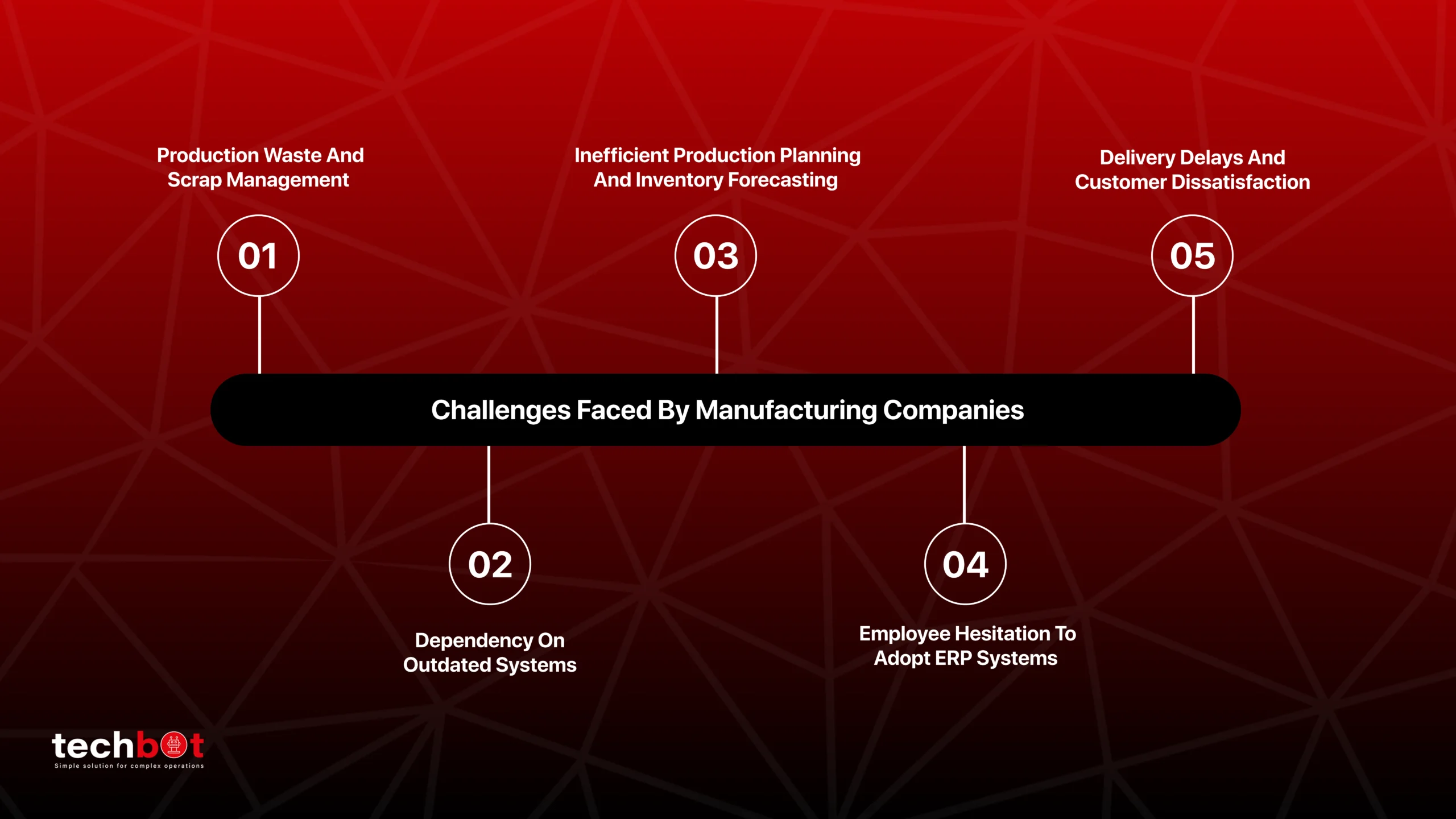
1. Production waste and scrap management
Every piece of raw material is valuable, but without proper tracking, a lot of it goes to waste. Many manufacturers do not have a system to monitor scrap and leftover materials, leading to higher costs over time. A lack of visibility also makes it difficult to reuse excess materials effectively.
Example: A steel manufacturer cuts large sheets into smaller pieces for production. If the remaining scrap isn’t tracked, it gets discarded, increasing material costs.
✅ How ERP Helps:
- Tracks raw materials and scrap in real time.
- Reuses leftover materials, reducing waste and saving money.
Fact: Automated inventory tracking can reduce waste by up to 30%!
2. Dependency on outdated system
Many manufacturing companies still use spreadsheets or disconnected software systems to handle production and inventory. This manual approach increases the chances of errors, miscommunication, and operational inefficiencies. Without real-time data, businesses struggle to make informed decisions, leading to costly mistakes.
Fact: Productivity of SMEs in Dubai is comparatively lower in comparison to other trading and service economies
Example: A factory using Excel to track inventory may face frequent stock mismatches. When materials are unavailable at the last minute, production is delayed, impacting delivery timelines.
✅ How ERP for Industrial Equipment Helps:
- Connects sales, production, and inventory in one system.
- Reduces human errors and improves accuracy.
3. Inefficient production planning and inventory forecasting
✅ How Inventory Management Software for Manufacturing Industry Helps:
- Forecasts material needs based on sales and stock levels.
- Sends alerts when stock is low, preventing delays.
Production planning is crucial for meeting deadlines, but many businesses fail to anticipate material shortages. Without accurate forecasting, manufacturers often run out of key components, causing bottlenecks in production and customer dissatisfaction. Late deliveries hurt business reputation and profitability.
Fact: 74% of businesses have experienced delays in shipments and longer lead times due to poor inventory management practices.
Example: A furniture manufacturer receives a large order but realizes they don’t have enough specific wood types. Since they didn’t track material availability properly, they now have to wait for new supplies, delaying production and delivery.
4. Employee hesitation to adopt ERP systems
Switching to a new system can be intimidating for employees, especially if the interface is complex. If workers find the ERP system difficult to use, they may resist adopting it, leading to operational inefficiencies. A poorly adopted system fails to deliver its full benefits, making training and usability key concerns.
Fact: 45% of UAE manufacturing employees find complex ERP systems hard to use.
Example: A factory implements a well-known ERP system but struggles with employee training. Workers find it confusing, leading to delays and errors in order processing.
✅ How Manufacturing ERP Fixes This:
- Simple, user-friendly interface that’s easy to learn.
- Barcode scanning makes data entry quick and easy.
- Minimal training required—employees can get started fast.
5. Delivery delays and customer dissatisfaction
When production schedules are not properly managed, deliveries are delayed. Customers expect timely deliveries, and failing to meet deadlines can lead to lost contracts and reduced business growth. Poor coordination between departments is often a major cause of late shipments.
Fact: Manufacturers using advanced production planning software can cut delivery times by up to 50%.
Example: A machinery manufacturer has multiple departments handling production, logistics, and sales. Due to a lack of coordination, materials arrive late, delaying final assembly and causing missed deadlines.
✅ How ERP for Industrial Equipment Helps:
- Real-time updates on production status and inventory.
- Smart scheduling to ensure materials are available on time.
- Better coordination between teams to avoid delays.
Trust Techbot for your successful Odoo ERP implementation
Manufacturers in the UAE need an ERP system that is affordable, easy to use, and built for efficiency. With increasing competition and rising operational costs, outdated systems can slow down production and hurt profitability. This is where Odoo makes a real impact.
Odoo is a manufacturing ERP that helps businesses manage production, inventory, and sales without the high costs and complexity of traditional ERP systems. Here’s why it is the best choice for manufacturers in the UAE.
1. Cost-effective without cutting features
Many ERP systems come with high licensing fees and expensive maintenance, making them difficult for small and mid-sized manufacturers to afford. Odoo offers an affordable alternative without sacrificing essential features.
A well-managed ERP system reduces errors, improves production planning, and saves costs in the long run. With Odoo, manufacturers get all these benefits without the financial burden of a high-end ERP.
2. Simple and easy to use
Most ERP systems require months of training because they are complex and difficult to navigate. Odoo is different. Its user-friendly design makes it easy for employees to learn and use, even if they have no technical background.
When employees can quickly adapt to a new system, production and inventory processes become smoother, reducing delays and miscommunication.
3. Grows with your business
Your manufacturing business will change over time, and your ERP should be able to grow with it. Odoo is highly scalable, meaning it can support your business whether you are expanding operations, introducing new products, or managing multiple warehouses.
With a system that adjusts to your needs, you won’t have to switch ERP software every time your business reaches a new stage.
4. Fast and hassle-free implementation
Many ERP systems take months to install and configure, disrupting business operations. Odoo is designed for quick setup and smooth integration with your existing workflows.
A fast implementation means manufacturers can start seeing improvements in efficiency and productivity within weeks rather than months.
5. Real-time insights for better decisions
Manufacturers need real-time visibility into production, inventory, and sales performance to make informed decisions. Odoo provides live dashboards and automated reports that help track key business metrics.
With accurate data at your fingertips, you can optimize production schedules, reduce waste, and ensure timely deliveries.
Why UAE manufacturers trust Techbot for ERP implementation
Choosing the right ERP implementation in the manufacturing industry can make all the difference. Manufacturers in the UAE face unique challenges, and Techbot delivers customized manufacturing ERP solutions to overcome them.
✅ Industry Expertise – Over 100+ manufacturing companies in the UAE trust Techbot’s ERP solutions.
✅ Custom-Fit Solutions – Every implementation is tailored to match your unique production needs.
✅ Easy Employee Adoption – User-friendly ERP with minimal training required for seamless transition.
✅ End-to-End Implementation – From setup to support, we handle everything for a smooth ERP rollout.
✅ Proven Cost Savings – Manufacturers save up to 20% in operating costs with smarter workflows.
Techbot’s expertise in Odoo implementation for manufacturing
Techbot ERP has a proven track record of helping manufacturing companies in the UAE improve their operations with Odoo. The company has extensive experience working with manufacturers across different industries, including:
✅ Steel manufacturing—areal-time tracking of scrap and raw materials.
✅ Food manufacturing—monitoring production loss and managing expiry dates.
✅ Furniture manufacturing—optimizing inventory and tracking material usage.
✅ Animal feed manufacturing—managing batch production and quality control.
✅ Precast manufacturing—streamlining mold management and production scheduling.
✅ Packaging industry—monitoring material usage and ensuring product consistency.
Manufacturing companies in the UAE face growing pressure to enhance operational efficiency, reduce costs, and meet customer demands. Techbot Information Technology LLC offers expert Odoo implementation services, helping manufacturers in key industrial zones like JAFZA, DIC, RAKEZ, and KEZAD improve their production processes, reduce waste, and increase profitability.
With a strong track record in the manufacturing sector and a deep understanding of the UAE market, Techbot is the ideal partner for manufacturers looking to upgrade their business operations with Odoo.
Take the next step towards operational excellence.


